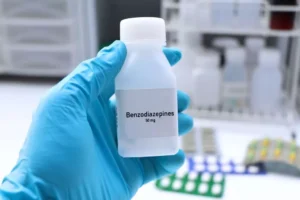
The therapist also provides individual coaching between sessions to support clients in using these skills in real-life situations. Through these activities, people can release themselves from self-blame and the emotional burden that comes with it. Practicing Forgiveness Towards Oneself is a crucial aspect of addiction recovery that deserves attention. It involves exhibiting empathy, kindness, and compassion towards oneself despite past mistakes or shortcomings. Embracing this process empowers individuals to let go of feelings that could otherwise derail their recovery efforts. Thus, making amends transforms the narrative from one of shame and remorse to one of healing and hope.
- In the 4th step, we make a searching and fearless moral inventory, bringing hidden shame and guilt to the surface.
- Through a supportive network and positive self-perceptions, recovery becomes not only possible but also empowering, enabling a new chapter of resilience and self-worth.
- CBT helps individuals recognize and challenge negative thoughts tied to past actions, while DBT emphasizes emotional regulation and acceptance.
- Having open conversations with others who share similar experiences provides immense therapeutic value.
Developing a Positive Self-Image
These are also the people who could greatly assist in encouraging the sufferer to seek treatment. The relationship between shame and addiction is a spiraling, race-to-the-bottom type of interaction. Therapy and counseling are not just for those with severe mental health conditions. It can be beneficial for anyone experiencing emotional difficulties. Shame and guilt can feel like heavy burdens, especially when you’re struggling to overcome addiction.

Overcoming Shame and Guilt in Recovery and Strategies for Self-Forgiveness and Healing
Recovery from addiction often involves navigating feelings of guilt and shame, which can be overwhelming and hinder progress. Creating a space where individuals feel safe and accepted without fear of judgment is crucial. A supportive environment fosters openness, allowing individuals to share their struggles and emotions openly. When people feel understood rather than judged, they are more likely to engage actively in their recovery journey, build self-esteem, and maintain motivation.

The Role of Compassion and Self-Forgiveness

Addressing guilt and shame involves practical techniques for emotional release. Activities like journaling or engaging in therapy can offer emotional outlets for these intense Sober living house feelings. Mindfulness practices can help individuals focus on the present, thereby reducing the tendency to ruminate on past mistakes. Challenging negative self-talk and replacing it with positive affirmations can also foster healthier self-perception and promote a more resilient self-identity. When a person enters addiction treatment, they detox and then address the causes of their addiction through therapy and support groups. This helps them change their perceptions about themselves, and remove the negative emotions and thoughts that are driving the addiction.
- Set achievable goals and celebrate your progress, focusing on the present and future rather than dwelling on the past.
- Taking responsibility for the wrongs we have committed is a part of maturing and growing as a person.
- While guilt can motivate making amends and healing, shame tends to foster a destructive cycle of avoidance and secrecy.
- We offer a wide range of treatment options designed to fit your unique needs, giving you the support and guidance needed to overcome addiction and reclaim your life.
The Importance of Building a Healthy Routine in Recovery

Moreover, fostering self-forgiveness and compassion enables individuals to regain a positive self-view, essential for sustainable recovery. Incorporating spiritual and emotional healing strategies creates a nurturing environment conducive to long-term transformation. While the helpline does not offer counseling directly, it provides vital referrals to appropriate services that can support emotional well-being and https://ecosoberhouse.com/article/how-to-recognize-the-warning-signs-and-symptoms/ recovery. Recovering individuals often grapple with intense emotions like guilt and shame, which can impede progress if not properly addressed.
- These new experiences foster personal growth and reinforce a healthier self-perception, encouraging individuals to move forward in their recovery journey.
- Instead, work on shifting attitudes and routines to improve your ability to make wiser choices now and in the future.
- Overcoming feelings of guilt and shame is a critical component of successful addiction recovery.
- They are both common feelings which can come from addiction or drug abuse.
Recovery is not about being perfect, it’s about progress, self-compassion, and embracing the journey toward a healthier, more fulfilling life. If you or a loved one are looking to start your recovery journey, contact us today. While this may seem overwhelming, it’s also one of the many reasons why it is important to focus on small, achievable milestones in recovery to build confidence and counter feelings guilt and shame in recovery of failure.
That part of what’s going on is they feel ashamed of themselves. Ironically, the shame because it’s so stressful will lead to continued addictive behaviors, and so you get locked in this vicious cycle. But if a parent can understand that in a shame cycle, it’s what I call situational sociopathy.
